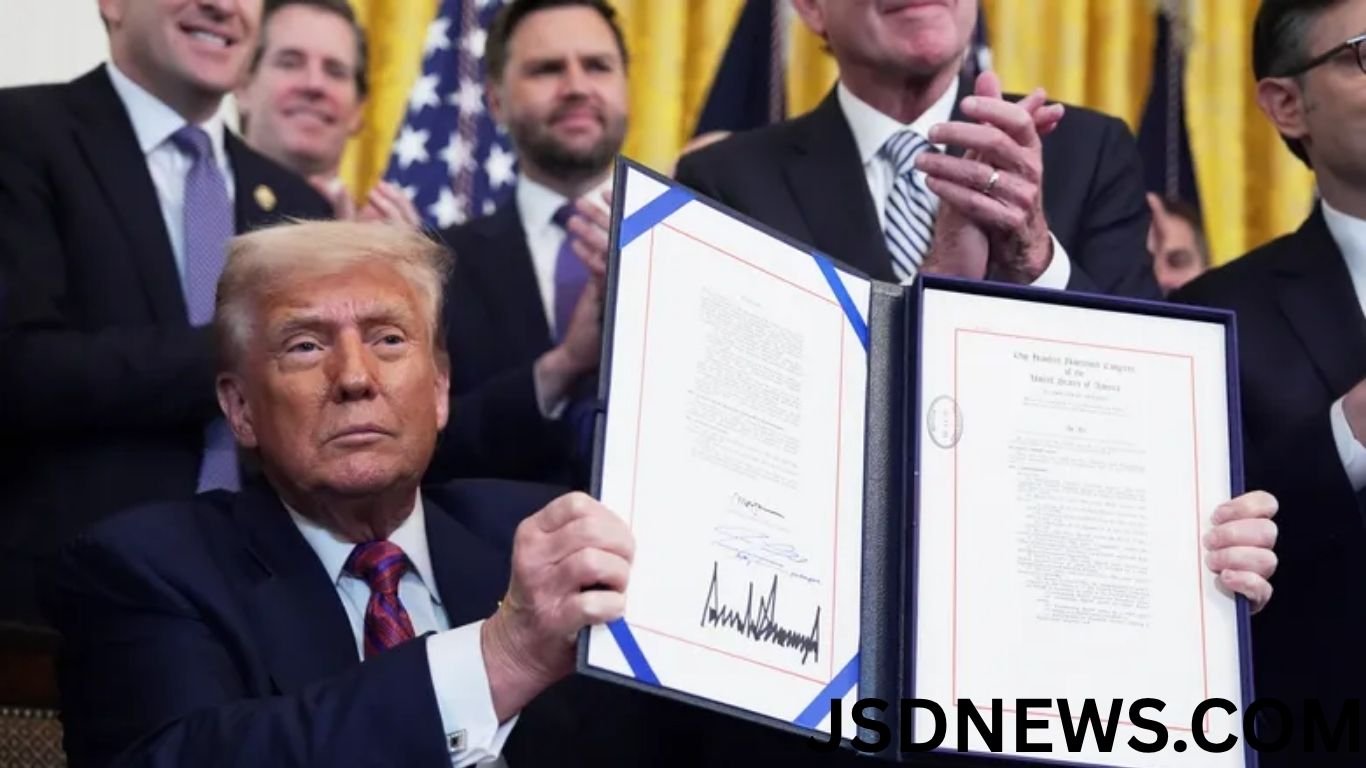After a bumpy beginning to ‘Crypto Week,’ the Genius Act gains momentum among House Republicans.
On July 17, House lawmakers passed the Genius Act—Guiding and Establishing National Innovation for U.S. Stablecoins Act—in a 308–122 vote, sending the bill to President Donald Trump for his signature.
The legislation marks the first attempt to create a federal regulatory framework for stablecoins, a form of cryptocurrency typically pegged one-to-one to the U.S. dollar to maintain a stable value.
The bill had previously cleared the Senate in June with strong bipartisan support, passing 68–30. However, when it reached the House, a procedural vote to set terms for floor debate failed on July 15, with a 196–223 vote, as 13 Republicans joined Democrats in opposition.
Procedural votes usually see full support from the majority party, making the outcome unusual.
Following a brief period of uncertainty—and a push from the president—the House narrowly advanced the bill on July 16 with a 217–212 vote, setting the stage for its final passage.
Crypto Week Advances: Genius Act Heads to Trump’s Desk Amid Broader Push for Digital Asset Reform
A trio of cryptocurrency bills—the Genius Act, Clarity Act, and Anti-CBDC Surveillance State Act—are poised to reshape U.S. crypto policy. According to Rep. Tom Emmer, the measures will reinforce U.S. dollar dominance, drive innovation, and ensure digital currencies reflect American values such as privacy, individual freedom, and free-market competition.
White House Press Secretary Karoline Leavitt confirmed on July 17 that President Trump plans a signing ceremony for the Genius Act, which establishes the first federal regulatory framework for stablecoins.
A Rocky Start to ‘Crypto Week’
Despite strong momentum, House Republicans initially faced internal divisions. Speaker Mike Johnson (R-La.) encountered pushback from lawmakers, including Rep. Marjorie Taylor Greene (R-Ga.), who pushed to bundle all three crypto-related bills. On July 15, a procedural vote on the Genius Act failed after 13 Republicans joined Democrats. However, following President Trump’s intervention, the bill advanced in a narrow 217–212 vote and passed the House the next day with broad bipartisan support.
Trump later wrote on Truth Social that he met with GOP holdouts, who agreed to support the bill. Speaker Johnson thanked Trump publicly, saying, “All House Republicans are for truth and transparency. President Trump can be trusted to stand for justice and protect the innocent.”
Additional Crypto Bills Pass
The Clarity Act, which establishes a full market structure for crypto, passed with bipartisan support (294–134) and now moves to the Senate. The Anti-CBDC Surveillance State Act, which bans retail central bank digital currencies (CBDCs), passed narrowly 219–210. Greene praised the bill, stating, “Americans do not want a government-controlled CBDC,” and emphasized that Congress should codify Trump’s January 23rd executive order banning it.
Still, Greene acknowledged challenges ahead in the Senate: “They don’t have the votes. They can’t get to 60,” she said.
Trump’s Vision: ‘Crypto Capital of the World’
Cryptocurrency remains a central pillar of Trump’s economic strategy. During his 2024 campaign, he told a bitcoin conference in Nashville that the U.S. would become the “crypto capital of the planet and bitcoin superpower of the world.” A March White House fact sheet declared progress toward that goal.
Stablecoins play a major role in this vision. Though the market is dominated by Tether and USD Coin, the administration sees stablecoins as tools for expanding access to the U.S. dollar and for increasing demand for U.S. government bonds—potentially reducing borrowing costs and lowering the national debt.
“This new demand could help rein in the debt and onboard millions worldwide into the dollar-based digital economy,” said Treasury Secretary Scott Bessent on X last month.
Bitcoin Breaks Records
The flurry of legislation comes amid a surge in cryptocurrency markets. Bitcoin recently hit an all-time high of $123,000 before settling to around $119,000. The world’s leading cryptocurrency, which commands nearly two-thirds of the global crypto market, is up 26% so far this year.











